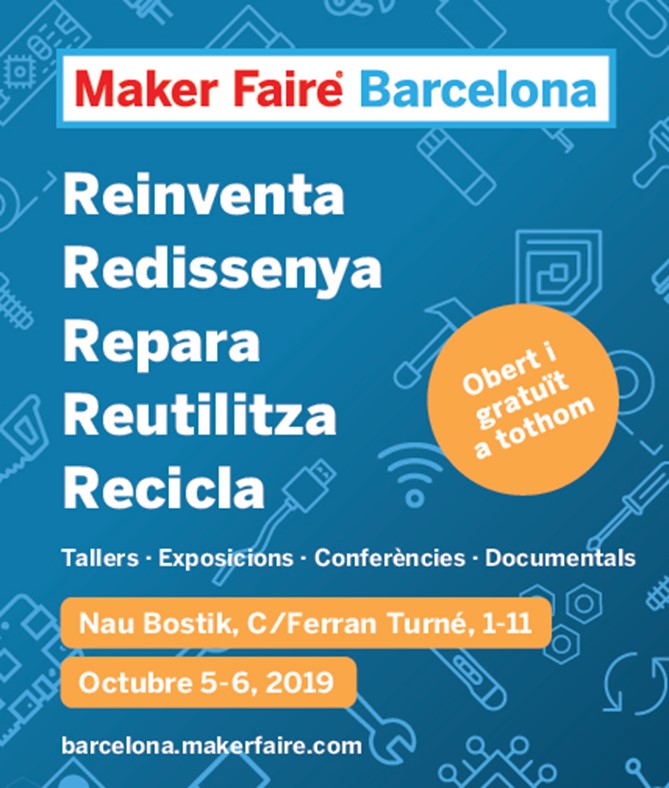ICTA-UAB to participate in the Maker Faire Barcelona
ICTA-UAB researchers will participate in the sixth Edition of the Maker Faire Barcelona which is taking place next 5th – 6th October at La Nau Bostik in the neighborhood of La Sagrera.

ICTA-UAB members of the Sostenipra group will tackle the “Circular City” through two case studies on “Urban agriculture in the framework of the circular city” and on “The recovery of electrical and electronic equipment (EEE) materials in the framework of the circular economy"·
Maker Faire Barcelona is a partnership between Sonar+D, Fablab Barcelona, SokoTech and Make, with the support of Barcelona City Hall, Arrow, HP and PRUSA Research. It is the greatest annual event of digital creativity and invention concern to tackle and solve the great challenges facing today people in a progressively complex society.
It gathers hundreds of local and international Makers who are enthusiastic to share their knowledge, creativity and their brightest projects through exhibitions, creative technologies workshops, conversations and interactive demos, targeted at all ages.
This edition, the Maker Faire wants to emphasize the urgent need to rethink and activate a new model of local and scalable economy: research, learning, entrepreneurship, production, employment and responsible consumption for the city, highlighting the central role of the Circular Economy, Resilience and Creativity.
ICTA-UAB researchers from Sostenipra group will showcase during the weekend an urban garden model as an example of urban rooftop agriculture, and they will show how to recovery the materials from disused electrical and electronic equipment.
ICTA-UAB will also take part in the Speakers Corner giving a talk, next 3rd October at 11h. Dra Laura Talens and Dr Joan Rieradevall will tackle the Circular City within the seminar “Transition towards a rural and urban circular economy”.
In the last 40 years the global use of finite raw materials has almost tripled, from 26.7 million tonnes in 1970 to 84.4 million in 2015 and a recent report by Circle Economy, pointing out that by 2050. If nothing stops it, misuse could reach 170/184 million tonnes, numbers that exhaust the planet’s sustainable limits.
This meltdown generates unprecedented amounts of waste. As raw materials decline and waste increases, the linear economy model “extract, make, use and pull” causes great pressure on the natural environment and calls for an urgent reconsideration.
A circular and resilient economy describes a new economic system where nature and people are studied as a single set. It is based on the reduction, reuse, recycling and recovery of materials and processes of manufacturing of local, clean products, intensives in knowledge and in labor.
Cities that hold more than half of the world’s population represent ideal environments, laboratories to understand how to design and scale sustainability through resilience and circularity, possibly the two most important characteristics for the future of people.
The transition to a circular economy means rethinking all aspects of urban life. This includes searching solutions and consumption habits so that raw materials and products remain in circulation beyond the programmed service life, thus minimizing the loss of finite resources offered by the planet during the production and consumption processes.
The transition to a circular economy means rethinking all aspects of urban life. This includes searching solutions and consumption habits so that raw materials and products remain in circulation beyond the programmed service life, thus minimizing the loss of finite resources offered by the planet during the production and consumption processes.